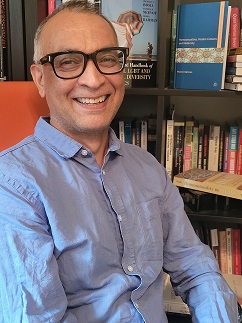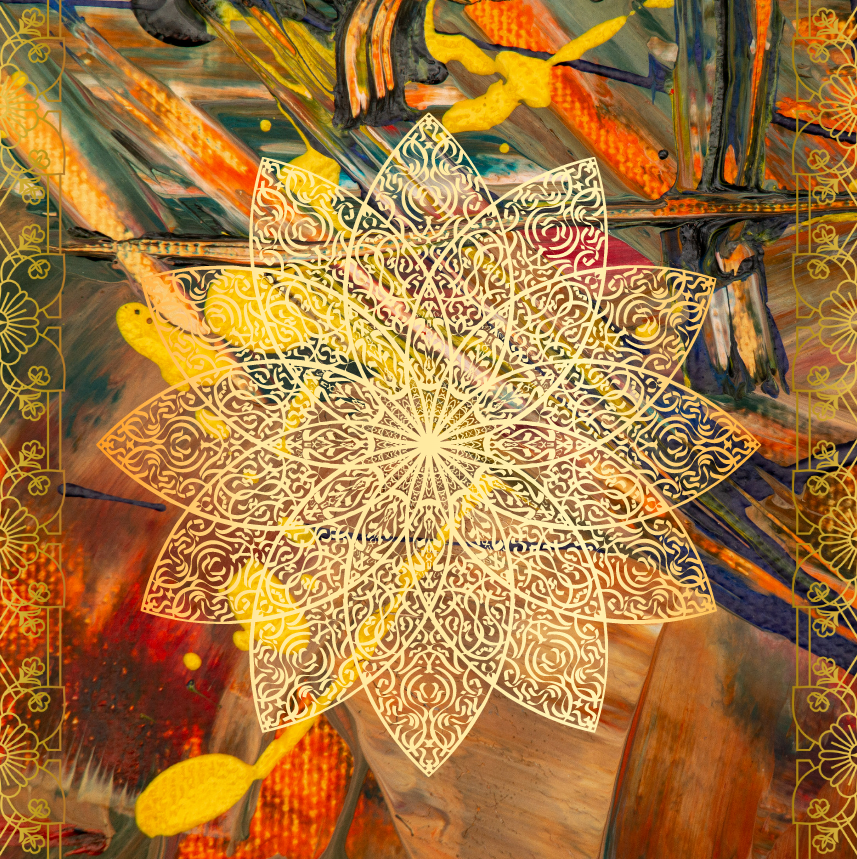
Momin Rahman (he/him) is a Professor of Sociology at Trent University. His current research is on the conflicts between LGBTQ2S identities and Muslim cultures, and the experiences of LGBTQ2S Muslims, including a funded research project on LGBTQ Muslims in Canada. He has presented this work at international academic conferences and at private policy meetings with the United Nations Human Rights Council. His published works appear in and include The Oxford Handbook of Global LGBT and Sexual Diversity Politics (2020, co-edited with Michael Bosia and Sandra McEvoy, Oxford University Press), Homosexualities, Muslim Cultures and Modernity, (2014, Palgrave Macmillan), Gender and Sexuality (2010, with Stevi Jackson, Polity) and Sexuality and Democracy (2000, Edinburgh University Press).
In April 2022, Sort Of won Best Comedy Series at the Canadian Screen Awards. This CBC show centres on a gender-fluid, second-generation Pakistani-Canadian Muslim who is navigating love and family in a multicultural and sexually diverse Toronto. In 2020, Samra Habib’s queer Muslim memoir, We Have Always Been Here won ‘Canada Reads’ – the national book competition run by the CBC. As Sort Of and Habib’s memoir rightly assert, we exist! There are Queer Muslim Canadians, but I also want to complicate any assumptions of ‘progress’ that this visibility may imply, particularly during Pride Month, when we mostly emphasize the increasing acceptance queer people in Canada.
The reality is that there are both public and private difficulties and exclusions for queer Muslims that are more visually described by the slashes in this essay’s title. In Canada and around the world, being queer and being Muslim is often understood as a dichotomy, and being Muslim and Canadian also remains in tension, evidenced by anti-religious laws in Quebec, the murder a Muslim family in London, Ontario in 2021, and the targeted killings of Muslims at the Quebec City Mosque in 2017.
I write as a queer Muslim heritage racialized immigrant to Canada, whose academic work has focused on developing an analytical framework of ‘Muslim Queer as Intersectionality’. This framework means thinking of queer Muslims as an intersection of queer, Muslim and Canadian, and using this lens to interrogate the assumptions of all three identities. An intersectional research agenda would begin with the distinct experiences of LGBTQ Muslims within the specific identities of both Muslim and queer. Queer Muslims are racialized queer individuals whose identities should not be reduced to ‘minority’ versions of being either Muslim or queer, because we suffer specific compounding exclusions of homophobias, racism and Islamophobia. However, we also exist as part of the two larger identities and, therefore, our issues also impact understandings of both Canadian queerness and Canadian multiculturalism.
Understanding the complexities of contemporary queer Muslim existence and regulation forces us to think about how queer politics needs to understand and confront colonial inheritances of sexuality tied to racialization, and at the same time ask questions of Muslim cultures about their denial of ‘Eastern’ gender and sexual traditions.
It is this precise understanding that would disrupt the apparent opposition of queer (as Western) and Muslim (as Eastern), leading us towards a more decolonial understanding of complex cultural differences in sexualities. For example, while all cultures, Muslim or otherwise, have often been patriarchal historically, many Muslim cultures also suffer from colonial impositions of anti-queer laws and culture, narrowing the acceptability of gender diversity and sexual expression in order to reinforce a heterosexual property-based model of relationships that was crucial to legitimizing western colonial power. Many Muslim leaderships now buy into these ideas, recovering heterosexism for their postcolonial cultures and thus denying the traditions of gender and sexual diversity that we know existed historically. Understanding the complexities of contemporary queer Muslim existence and regulation forces us to think about how queer politics need to understand and confront colonial inheritances of sexuality tied to racialization, and at the same time ask questions of Muslim cultures about their denial of ‘Eastern’ gender and sexual traditions.
Focusing on queer Muslim experiences exposes the imperfections and incompletions of frequently taken-for-granted understandings of the categories LGBTQ or Muslim and, moreover, opens up a way to create pathways to commonality and acceptance that are necessary for both communities. There are common themes within the lived experiences of queer Muslim Canadians. First, there is the expectation and experience of homophobia from immediate family and the wider community, which is based on the view that public homosexuality (i.e. being out) is seen by Muslim communities as a western phenomenon. Furthermore, many queer Muslims describe the lack of a community to support them, specifically a group of other queer Muslims, but also from mainstream Muslim and LGBTQ organizations. For those who profess faith, a common reaction to this is to seek to engage with Islamic scripture on an individual basis, searching for ways to reconcile sexual diversity and Islam. Many, however, identify as culturally Muslim, with family and community anchoring their sense of self instead of the specific religious identity. Finally, racialization plays a key part of how queer Muslims experience their everyday lives and their queerness and, to a lesser extent, how they perceive this as part of the wider cultural antipathy towards Islam and Muslim minorities in the West and internationally.
These realities presents challenges to both LGBTQ and Muslim communities. For the former, there must be an understanding that the journey and end point of ‘coming out’ is not universal, and is not the only path towards a fully realized queer life. Many queer Muslims have said they are happy not to be out to their families or extended communities, while still being able to live a queer social and sexual life. They may share their identities with select (and chosen) family members and friends and otherwise live a life in social worlds outside of Muslim communities. Other queer Muslims have come out and have received varying levels of support from family and friends, but still too often not from the wider Muslim community. Westerners may react to this knowledge as a ‘limited’ queer existence, but it should be questioned whether that assumption is based on western experiences of secularization, gender differences and the equation of sexuality with core individualism. Questioning these assumptions is what a true decolonial process looks like. This is not to suggest that cultural homophobias should be accepted without question, but rather that we employ a decolonial analysis that considers racialization when challenging queer oppressions. For example, the role of Islamophobia in making Muslim communities resistant to queer acceptance needs to be explored more, as does the motivation of Muslim religious and political leaders in embracing the colonial-era version of a rigid heterosexual norm. Much of the research evidence shows that families draw on wider political ideas of queerness versus Islam, even when they are aware of their own historical cultural traditions of gender and sexual diversity.
Queer organizations thus need to be active allies in challenging racism and Islamophobia, because not all their members are white or culturally secular and because queer rights discourse can be coopted into the racist and Islamophobic rhetoric that’s deployed in the disparaging portrayals and ‘othering’ of Muslims.
None of these pathways can be established without first, the validation of queer Muslim knowledge and experiences. Too often, we are excluded from mainstream Muslim and queer groups, politics and communities. Queer organizations thus need to be active allies in challenging racism and Islamophobia, because not all their members are white or culturally secular and because Western queer rights discourse can be coopted into the racist and Islamophobic rhetoric that’s deployed in the disparaging portrayals and ‘othering’ of Muslims. As queers, we should have no part of that stigmatization. Supporting the sustainable capacity for queer Muslim organizations like Salaam Canada can help the community and their needs. Muslim communities and leaders also have a critical role in recognizing the existence of homo and transphobias within their communities and be equally active allies to queer groups in challenging such hate. The key way to do this is to affirm and embrace their queer members, and develop better support mechanisms for their families, where much of the exclusion and heartache exists for queer Muslims. It’s a difficult path, but we can begin, together. Above all, we need to recognise that homophobias and Islamophobia will never be fully defeated if one or the other remains. To not see and uplift those who are vulnerable within your community, weakens the entire community, and wears away at the pride and dignity that all communities, and all their members, should enjoy.
My message for queer Muslims is to recognize the power that you have. Both queers and Muslims can oftentimes make it difficult for us to live in peace, security and with pride, but that is also precisely why we have so much power: we are the connection point between two groups who need to see each other and learn from each, and through us, that can happen.
Momin Rahman
Professor of Sociology
Trent University
mominrahman@trentu.ca
Pride Month and Indigenous History Month Guest Essay Series
To read the other essays in this series:
June 1 | On Intersectionality, Access to Justice, and Walking Between Worlds, by Benjamin Vandorpe, Founder, JusticeTrans.
June 8 | LGBTQI+ Afghans Need a Safe Way Out by Kimahli Powell, Executive Director, Rainbow Railroad.
June 15 | Indigenous Women, Girls and Gender-Diverse People Are Humans With Rights by Lynne Groulx, CEO, Native Women’s Association of Canada.
June 21 | Epimotew Tastawayik Niso Askiya – Walking in Two Worlds by Rachel Wuttunee.
June 21 | Industry, Police, and MMIWG2S in Wet’suwet’en Yintah by Jennifer Wickham.





















